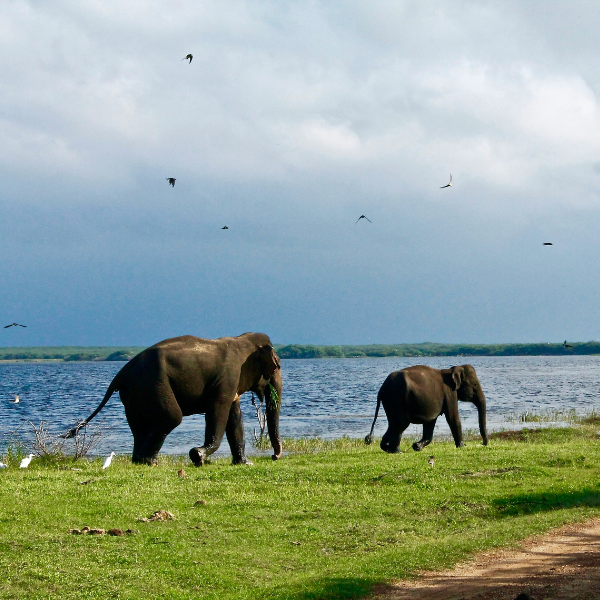Covid-19 and the Sri Lankan Tourism Industry: 8 Points to Ponder
By Srilal Miththapala
The Current Status of the Tourism Industry
When I penned my thoughts in early March 2020 in an article titled – Tourism: Mother of all crises’ around the corner? – I did not even dream that things would become this serious due to Covid-19. Many airlines the world over have since stopped operating, airports have shut down, hotels have closed, staff have been sent home. In short, Tourism the world over has virtually ground to a halt. I was wrong. This is not the ‘Mother of all crises’, this is the ‘Mother and Grand-Mother of all crises’!
So yes, it is a doom and gloom scenario that we are in now, inundated with information about Covid-19. The World Travel and Tourism Council (WTTC) expects a dip of about 25% or more in Tourism earnings, with at least 50 million job losses worldwide, while Asia will account for about 30 million of this[1]. The UN secretary general has said that this crisis is ‘the most challenging crisis we have faced since the Second World War’[2].
So, what do we in the Sri Lankan tourism industry do? Where do we go from here? Without resorting to some crystal ball gazing, here are some thoughts on how tourism will pan out.
1. Travel will bounce back, but tourism will be slow in returning to normalcy
Man’s insatiable thirst to explore and experience new things will always prevail over all else. For almost 8-10 consecutive years, Tourism could not have shown such consistent worldwide growth of 4.5-5% amidst so many intervening cries, if this were not so. More affluence, as the world’s emerging middle class grows rapidly, and proliferation of internet connectivity will fuel this growth in the future as well. So once this pandemic is over, I think there will actually be a pent-up demand for travel. But when this will happen is the million-dollar question?
While certain people will start travelling once the immediate threat subsides, and airline connectivity and airports start functioning, it will take longer for tourism to really come back to ‘pre-covid’ levels. There will have to be an international ‘all clear’ sounded for it to reach its full potential. An easily accessible vaccine is key to get to that point, which according to some experts is 12-16 months away.
2. Speed of recovery is out of our hands
Usually tourism is a ‘front-end industry’. We are the first to be hit, but we are also the first to rise up. In June 2009, the month following the end of the civil war in Sri Lanka, occupancies showed dramatic increases. However, all previous crises have been more or less within our purview, where we could take strategic initiatives on our own, to mitigate the crisis. This time it is radically different, because this is a worldwide crisis, the likes of which we have not seen before in our lifetime. It is affecting tourism’s entire value and supply chain. Therefore, the whole world will have to come to some equilibrium recovery stage before tourism can fully recover, unlike other industries. (e.g. exports can continue on a selective basis since there are ongoing cargo operations)
3. Who will survive? Who will crash?
I believe that the mid-to lower range accommodation providers with 20-80 rooms will be the worst hit. The bigger chains will certainly have the ‘staying power’ to buckle down for a long wait. The really small, ‘mom-and-pop’ home stay operators will also survive. These small timers have very little overheads, and most often, the service staff are family members or relatives. As such, they will not have issues of layoffs and retrenchment, and their financial commitments towards capital repayments would also be minimal.
It is the slightly larger, single owner accommodation providers who would be the likely casualties. Most often their investment would be relatively large, and quite a number of them would have just ‘jumped on the tourism bandwagon’ during happier times, without any product innovation or differentiation. Therefore, many such mid to low range hotels will succumb, without cash to service their loans. Moratoriums and deferments are all good, but they are not write-offs. All these accumulated dues will have to be eventually paid off.
4. Where will the demand be?
After a crisis, we see that the ‘first movers’ are generally the risk-taking, younger travellers. They are by nature looking for cheaper offerings, but at the same time are more adventurous and prefer authentic ‘back-to-basic’ experiences. In Australia, when the lockdown was announced, many of the law breakers were the younger folk, who thronged the beaches in defiance of the lockdown.
So, quite clearly, the initial demand would be for the lower end, B&B guest houses and home stays, which this segment patronises, and not really the higher end establishments.
5. What can the formal hotel sector do?
Smart hotel management operators will use this down time to rethink and plan out new strategies. They can review and streamline all procedures to provide a better customer service, innovate and create new value-added product and service offerings, motivate, train and upskill staff (when physically able), embark on introducing a proper sustainable consumption regime etc.
6. Operations will have to re-focus on health, safety & cleanliness
As tourism starts to recover and the mainstream interest gains momentum, tourists are going to be a lot more cautious about what they do and where they go. There will be the need to focus more on cleanliness and health aspects, with regular monitoring of how the environment is cleaned. This will call for more stringent and visible measures to communicate the effort made to keep the product and service clean. So, we may see more hand sanitizer dispensers, gloves, disinfecting procedures etc. The end result is to reassure tourists that the establishment is doing its utmost to keep them safe during their holiday. The Housekeeping Department of the hotel, often relegated to the back of the house, will take on a greater importance in the forefront of future hotel operations.
7. A new start for tourism in a more responsible manner?
Tourism has been labelled as one of the industries that causes serious damage to the environment and contributes to global warming. There is certainly some truth to this.
Our hotels are energy guzzlers. We seek out the most pristine environments for tourism development and contribute a large amount of waste and pollution in general. In the post-war rush to develop and play catch up for the lost years, we have not been responsible, nor been environmentally sustainable. Copa Cabana style high rise slivers of concrete monstrosities calling themselves hotels have sprung up on our pristine beaches. We have exploited our natural assets and wildlife in the name of tourism to almost a point of no return, by overcrowding and over-visitation. We have pursued quantity over quality.
Hence, this is an opportune moment to wipe the slate clean and start afresh, with proper guidelines and rules for responsible development of the tourism product offering. The best would be for all stakeholders to come together and self-regulate according to pre-determined guidelines. It will not be difficult to draw up, say, ten guidelines for sustainable operations in travel and hotel operations, if all stakeholders would take an oath to follow them. We who are involved in tourism, and who depend so much on Sri Lanka’s natural beauty for our promotions, must help nurture and protect the environment’s healing process.
8. Communication with customers
While it would be futile to commence any promotional programs for hotels at this juncture, it is certainly very important to communicate with guests, both past and potential. Factual and credible updates about the situation in Sri Lanka, good content that reminds people of the beauty of the country will all be very useful.
Embarking on a deep dive into the available customer database, with particular emphasis on repeat guests, during this period would be important. Different digital communications can be planned for different segments, with even some interactive webinars and virtual tours of interesting sites. The whole emphasis should be to keep reminding potential customers that ‘we are very much alive and kicking here’, and that we will be ready to welcome them back as soon as possible.
“Stay home, be safe for now. When you come back, pristine Sri Lanka will be here to welcome you.”










